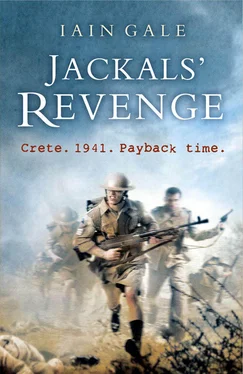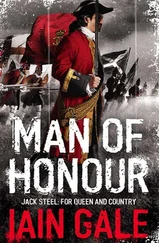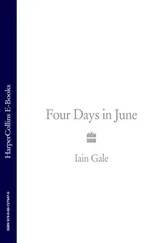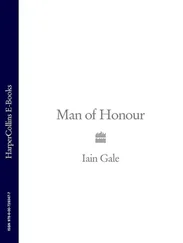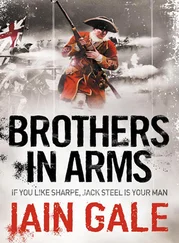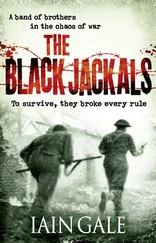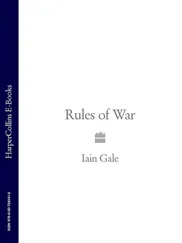‘Sorry, sir. I was told we were holding the pass.’
‘Well, you’re not holding it any more, Captain, are you? We’re leaving it to the Anzacs. This is their party now.’ He frowned. ‘You don’t actually mean you want to stay?’
Lamb shrugged. ‘Well, I want to do what’s right, sir. At least we’ll do what we’re ordered to, sir. I thought we might hold them up for a few hours.’
‘Or get blown to pieces in the process, Captain. Come on. Ten minutes. That’s all.’ And with that he was gone.
Lamb turned to Bennett. ‘I don’t believe it, Sarnt-Major. Do you?’
‘Just like in France, sir, if you ask me. No one knows what the blazes is going on. Not ours to question, though, sir. Eh? We’ll leave it to the Kiwis.’
‘Yes, you’re right, Bennett. It’s just that I can’t help feeling as if we’ve been given a last-minute reprieve. And desperately sorry for those poor bastards in the pass.’
Bennett was right, he thought. It was just like France. There too they had been told to pull out after having first been ordered to hold on. There, though, Lamb had disobeyed the order and it had damn near killed him. The wound in his back still gave him the occasional pain. This time he would do as he was told. This was no time for heroics. Not yet. He wondered, though, when the army would really stop retreating. They had won a victory in Egypt against the Italians, but it seemed that wherever they met the Germans in battle it was the British who did the running. They looked down into the pass towards where the New Zealanders had their forward positions.
‘They’re damn good fighters, sir. They’ll hold Jerry up for a while.’
Lamb nodded his head. ‘Yes, Sarnt-Major. I’m sure they will. We’d better get moving if we’re going. Get the chaps together, will you. We’ve only got ten minutes.’
There was a whine from north of the pass followed by a huge explosion.
Lamb stared at the rising cloud of dust. ‘Christ, those are 88s. Come on.’
The promised transports laid on for their withdrawal were a motley collection. According to the major, the Battalion HQ, along with A and B Companies, had gone on ahead, leaving Lamb with the last pickings. They amounted to two 3-ton trucks, a Bren carrier and a couple of fuel bowsers. Somehow, though, they managed to cram themselves in with all their equipment, and at last, with more rounds from the German anti-tank guns crashing into the emplacements behind them around the pass, they set off south west. Lamb took the lone carrier in front, and led the way along the road away from Thermopylae.
Their path was surprisingly clear. They rattled along through the morning heat, the distinctive scent of thyme and the baking, parched earth rising from the countryside. From time to time they passed evidence of German air attack: a shot-up vehicle or a peasant cart and the bodies of a horse or a team of oxen. They drove on for two hours, climbing steadily until the poplar-clad mountains enveloped them on both sides. The lower slopes of the hills, where the trees had been taken, were dotted with scrub. Beyond this was thick foliage: oaks and beeches and, as Lamb remarked to Bennett, pear trees. Ahead of them they could see the dust from the column, and occasionally, where the road took a twist and doubled back on itself, they saw their comrades below them, in a long trail of carriers and trucks.
Near the village of Brallos, through the pass that guarded the left flank of the Allied army, the countryside opened out and they found themselves on a high plain looking across to a vast mountain range. It was breathtakingly beautiful. They passed into a lush valley dotted with red-roofed farms and olive groves. But now Lamb began to worry, for apart from a few old men playing cards outside a bar, a few villages back, they had not seen any people. Not one.
On the outskirts of the little town of Levadia they turned a corner and came to an abrupt halt behind a cart. It was moving, but only just, and was piled high with belongings – a chest of drawers balanced on a table sat next to battered leather suitcases and two gilt-framed pictures. Perched amid and on top of the whole pile was an old crone dressed in black from head to foot. She was sitting facing them, travelling backwards, rocking back and forth and wailing quietly. Beyond the cart lay what looked to Lamb like an endless line of other carts and trucks of all descriptions. There were donkeys, too, and a horde of civilians. He swore. ‘Damn. This is what I feared. Those villages back there were much too quiet. This is why. They’ve heard the Germans are coming and they’re not staying to welcome them.’
Smart spoke. ‘Perhaps it’s just a bottleneck, sir. Maybe someone’ll pull the plug.’
‘Maybe, Smart.’
But ten minutes later they came to a halt and ten minutes after that they had still not moved. Lamb spoke to his runner, Bill Turner, seated behind him in the carrier, who had been chosen for the post as the fastest man in the company. ‘Turner, go ahead and see what’s going on.’
Five minutes later the man returned, breathless. ‘It’s a real jam up ahead, sir. Trucks and carts and all sorts.’
‘No idea what’s causing it?’
‘Could be anything, sir. Just goes on for about a mile. I didn’t get to the front. Shall I go back, sir?’
‘No, don’t bother. Any sign of the rest of the battalion?’
‘No, sir. There’s no Brits up there. A few Greek soldiers, but aside from that it’s all civvies.’
‘Damn. This lot must have cut in between us and them at that last junction. Well, there’s no other route and Jerry’s too close on our tail. We’ll just have to get out here and hoof it.’
Lamb looked around at the countryside. It was hard terrain off the road, with steep drops and vineyards and olive groves, which would make the going hard. But how the devil could they get past the mass of humanity on the road? He climbed out of the carrier. ‘I’m going to take a look. Sarnt-Major, Turner, you come with me. The rest of you wait here. Charles, tell the others what’s going on.’
The three of them pushed through the crowd of civilians along the road and Lamb marvelled at their composure. For the most part they passed through the crowd without comment. But soon Lamb became aware of an overwhelming atmosphere of grief. While children wailed and mothers chided, some of the refugees seemed almost catatonic, staring at the ground or away into the distance. Occasionally someone, usually a Greek soldier, would notice the three Englishmen and smile or give a thumbs-up. Civilians were mixed in with the military, and looking at them Lamb thought how war had become a great leveller, possibly more than it had ever been. Over to his left a woman in a fur coat and an ornate hat was stumbling along the road on high heels accompanied by her ageing and still neatly besuited husband. Who was he? he wondered. A lawyer, a doctor? Groups of civilians stayed close together, presumably families and neighbours from the same villages. What had they left behind, and what did they have now? And where were they going? To stay with relatives in the safety of the mountains? He supposed that more than a few of them might not have any idea.
The trail of people and vehicles seemed endless. At last, after what Lamb reckoned might have been the best part of a mile, they found what they had been looking for – a huge truck, old, with peeling black paintwork and of uncertain age and make, was slewed across the road and around it stood a cluster of Greek men of all ages: old men and boys, farm hands and soldiers in filthy and incomplete battledress. The men were talking and gesticulating towards the truck. Lamb had no Greek save the little he had learnt at school and he had quickly discovered how different that was from the local patois. It was clear to anyone, though, that the thing was stuck. He pushed through the men and stared at the truck as a Newmarket trainer might look at a horse, assessing its pedigree, its probable strengths and weaknesses, for one of the traits which marked Lamb out among his fellow officers was his knowledge of mechanics. Before the war, while he had thrown himself into the Territorial Army, his first love had been motors. When not employed as manager of a garage in his home town of Sevenoaks, when not in the drill hall or on manoeuvres, he had spent his evenings tinkering with his beloved BSA. There was little about engines that Lamb did not know or could not work out. He could of course take the easy option. They could take the brake off and push the thing off the road. But he looked around him at the empty, anxious faces and knew that it was not really an option. To destroy this precious means of transport might mean the end of all hope for a good dozen of these people if not more – old women and young children incapable, try as they might, of making it through the mountains to the safety of some hilltop village. The truck was their only chance of salvation.
Читать дальше
